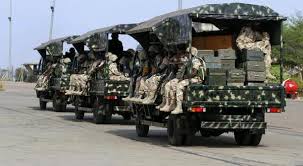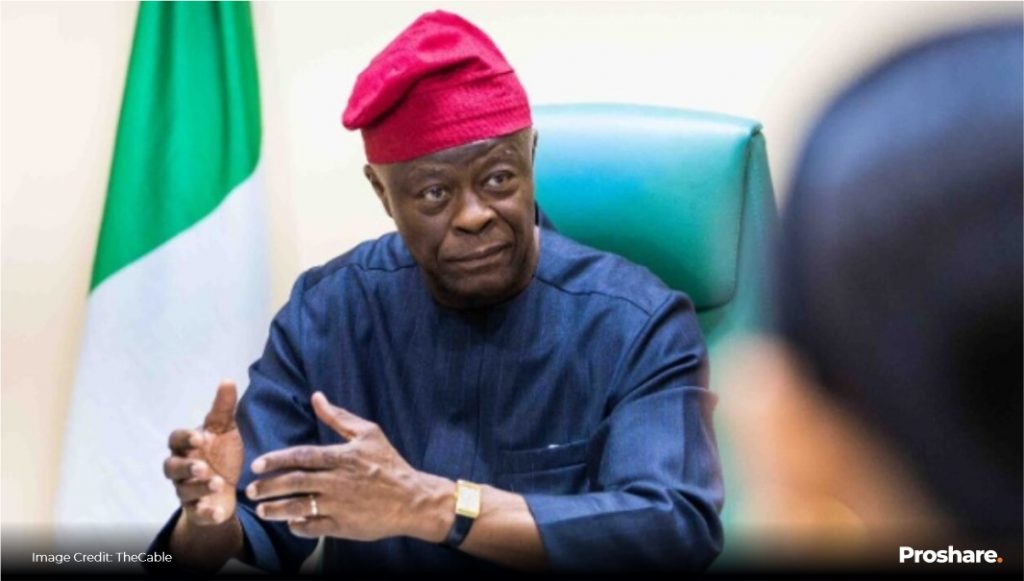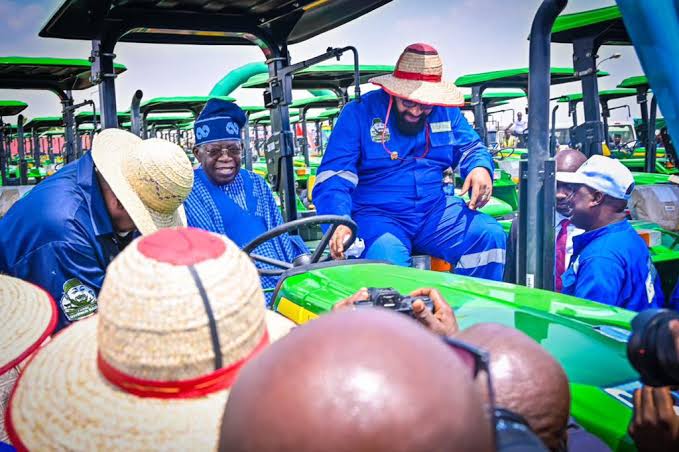The 2024 Independence celebration offered new perspectives on how Nigeria could be evaluated in the nation-building journey.
It was a time for citizens and the leaders of the country to reflect on how well the country has progressed.
For President Bola Ahmed Tinubu, it was a rare opportunity to renew his commitment during his inauguration about one and half years ago to do everything possible to build a better nation that will serve present and future generations of Nigerians.
Amidst the celebration of the feat achieved within record time since he assumed office as President of Nigeria and the serial progress the country has in the last sixty-four years, President Tinubu has been bold enough to point out that there are missed opportunities and mistakes of the past.
In his 2024 Independence Day speech, he said, “If we are to become one of the greatest nations on earth, as God has destined us to be, our mistakes must not be allowed to follow us into the future.”
This is suggestive of the fact that Nigeria needs robust retooling to move swiftly away from the dark ages, which President Tinubu has been doing with courage.
Speaking on the challenges that he faced upon assumption of office as president, President Tinubu said, “My administration took over the leadership of our country 16 months ago at a critical juncture. The economy faced many headwinds, and our physical security was highly impaired. We found ourselves at a dizzying crossroads, where we must choose between two paths: reform for progress and prosperity or carry on business-as-usual and collapse.”
Bravely, President Tinubu chose the latter option, hence the decision to embark on a journey to reform the country’s political economy and defence architecture.
Cutting cost of Governance
In a drastic move aimed at cutting the cost of governance, President Bola Tinubu has restricted Ministers, Ministers of State, and Heads of Agencies of the Federal Government to a maximum of three vehicles in their official convoys, just as no additional vehicles will be assigned to them for movement.
The cost-cutting measure was announced today in a statement signed by the President.
In January this year, President Tinubu took significant steps to reduce government expenditure by reducing his entourage on foreign trips from 50 to 20 officials. For local trips, he reduced it to 25 officials.
He similarly reduced the Vice President’s entourage to five officials on foreign trips and 15 for local trips.
In the directive, President Tinubu also ordered all ministers, ministers of state, and heads of agencies to have at most five security personnel attached to them. The security team will comprise four police officers and one Department of State Services (DSS) officer. No additional security personnel will be assigned, he ordered.
This is as President Tinubu instructed the National Security Adviser to engage with the Military, Paramilitary and Security Agencies to determine a suitable reduction in their vehicle and security personnel deployment.
All affected officials are expected to comply with these new measures immediately, underscoring the urgency and seriousness of these changes.

Security
On the security front, President Tinubu has boldly announced that his administration is winning the war on terror and banditry, with the target to eliminate all the threats of Boko Haram, banditry, kidnapping for ransom, and the scourge of all forms of violent extremism.
Recounting the success his administration has achieved in this regard, he said, “Within one year, our government has eliminated Boko Haram and bandit commanders faster than ever.”
As of the last count, over 300 Boko Haram and bandit commanders have been eliminated by the gallant troops in the Northeast, Northwest, and some other parts of the country.
Meanwhile, peace has been restored to hundreds of communities in the North, where thousands of people have been returned to their homes.
According to the president, this is an unfinished business, which the country’s security agencies are committed to ending as quickly as possible.
“As soon as we can restore peace to many communities in the troubled parts of the North, our farmers can return to their farms. We expect to see a leap in food production and a downward spiral in food costs. I promise you, we shall not falter on this,” President Tinubu stated in his speech.

Economy
The economy, under President Tinubu, is undergoing historic reforms and retooling to serve citizens and the country better and more sustainably.
The administration has so far gone far in its attempt to correct the fiscal misalignments that led to the current economic downturn.
Thanks to the reforms, Nigeria has attracted Foreign Direct Investments (FDI) worth more than $30 billion in the last year.
Speaking on this, President Tinubu said his administration is committed to free enterprise, free entry, and free exit in investments while maintaining the sanctity and efficacy of the country’s regulatory processes.
According to him, this principle is what has guided the divestment transactions in the country’s upstream petroleum sector, as evident in the ExxonMobil Seplat divestment, which has received ministerial approval, having been concluded by the regulator, NUPRC, in line with the Petroleum Industry Act, PIA. This was done in the same manner as other qualified divestments approved in the sector.
Meanwhile, the more disciplined approach adopted by the Central Bank to monetary policy management has ensured stability and predictability in the country’s foreign exchange market. Nigeria inherited a reserve of over $33 billion 16 months to the time of going to press. However, the President disclosed that since then, Nigeria has paid back the inherited forex backlog of $7 billion, adding that the government has also cleared the ways and means debt of over N30 trillion.
“We have reduced the debt service ratio from 97 per cent to 68 per cent. Despite all these, we have managed to keep our foreign reserve at $37 billion. We continue to meet all our obligations and pay our bills,” President Tinubu said.
“We are moving ahead with our fiscal policy reforms. To stimulate our productive capacity and create more jobs and prosperity,” the president added.
Meanwhile, the Federal Executive Council (FEC) has approved the Economic Stabilisation Bills, awaiting transmission to the National Assembly. These transformative bills will make the business environment in Nigeria more friendly, stimulate investment and reduce the tax burden on businesses and workers once they are passed into law.
As part of efforts to re-engineer the country’s political economy, President Tinubu said, “We are resolute in our determination to implement the Supreme Court judgment on the financial autonomy of local governments.”

President Tinubu on a tractor ride with Governor Bago of Niger State
Food security
One thing that has remained a major concern to the people today is the high cost of living, especially food costs.
Although this concern is global, President Tinubu has instituted policies to ameliorate the situation in Nigeria, as has assured that his government is implementing many measures to reduce the cost of living.
Whereas states like Kebbi, Niger, Jigawa, Kwara, Nasarawa, and the Southwest Governors have embraced innovative agricultural production programmes, President Tinubu has challenged other states to join the Federal Government in investing in mechanised farming.
On its part, the federal government has been supplying inputs to farmers while, providing a support base for innovative farming.
Only recently, the Federal Executive Council approved establishing a local assembly plant for 2000 John Deere tractors, combine harvesters, disc riders, bottom ploughs and other farm equipment, with a completion timeline of six months.
There is also the Belarus Tractors deal involving procurement of yet another 2000 tractors comprising four different types including 80 horsepower and 90 horsepower, two-wheel drives and four-wheel drives for each of the different categories, which will have 500 tractors each. That also will come with all the other implements with about 9,000 assorted sets of spare parts. The project also comprises of 12 mobile service workshops that will come along with all needed supply items. 10 pieces of 150 horsepower combined harvesters are also included.
The Green Imperative Programme (GIP), started under the previous administration is also primed for take-off. It is a €950 million programmme that will be funded by Deutsche Bank, with the backing of the Islamic Development Bank. The GIP does not require any counterpart funding from Nigeria, but it requires a sovereign guarantee. It involves among other things setting up of one service centre for every local government aceross the 774 LGAs of the Federation.
Energy
Meanwhile, his administration’s energy transition programme is on course, as the government is expanding the adoption of the Presidential Initiative on Compressed Natural Gas for mass transit with private sector players.
President Tinubu said the Federal Government is ready to assist the thirty-six States and FCT in acquiring CNG buses for cheaper public transportation.
Meanwhile, the government is implementing several other youth-centric programmes to give young Nigerians an advantage in the rapidly changing world by implementing, amongst others, the 3 million Technical Talents programme (3MTT) of the Ministry of Communications, Innovation and Digital Economy, aimed at building Nigeria’s technical talent backbone.
This is as the government have also implemented the Nigerian Education Loan Fund (NELFUND), which provides cheap loans to students to pursue their tertiary educational dreams. This is closely followed by the launch of The Renewed Hope Labour Employment and Empowerment Programme (LEEP), a comprehensive collection of interventions conceived for job creation by the Federal Ministry of Labour and Employment. Upon implementation, this programme will facilitate the creation of 2.5 million jobs, directly and indirectly, on an annual incremental basis whilst simultaneously ensuring the welfare and safety of workers across the country.
Like President Tinubu noted in Independence Day Speech, although the road ahead may be challenging, Nigeria can still be reformed to reflect the aspirations of all its citizens.
